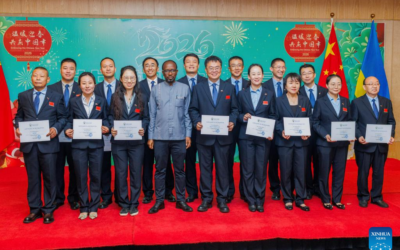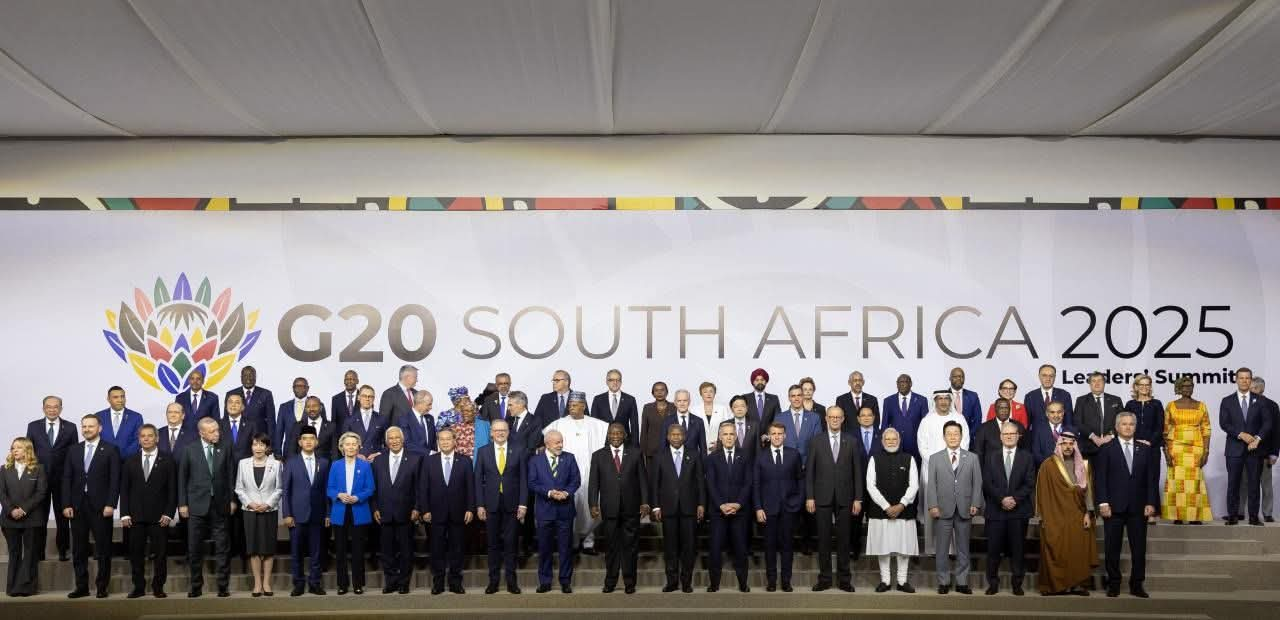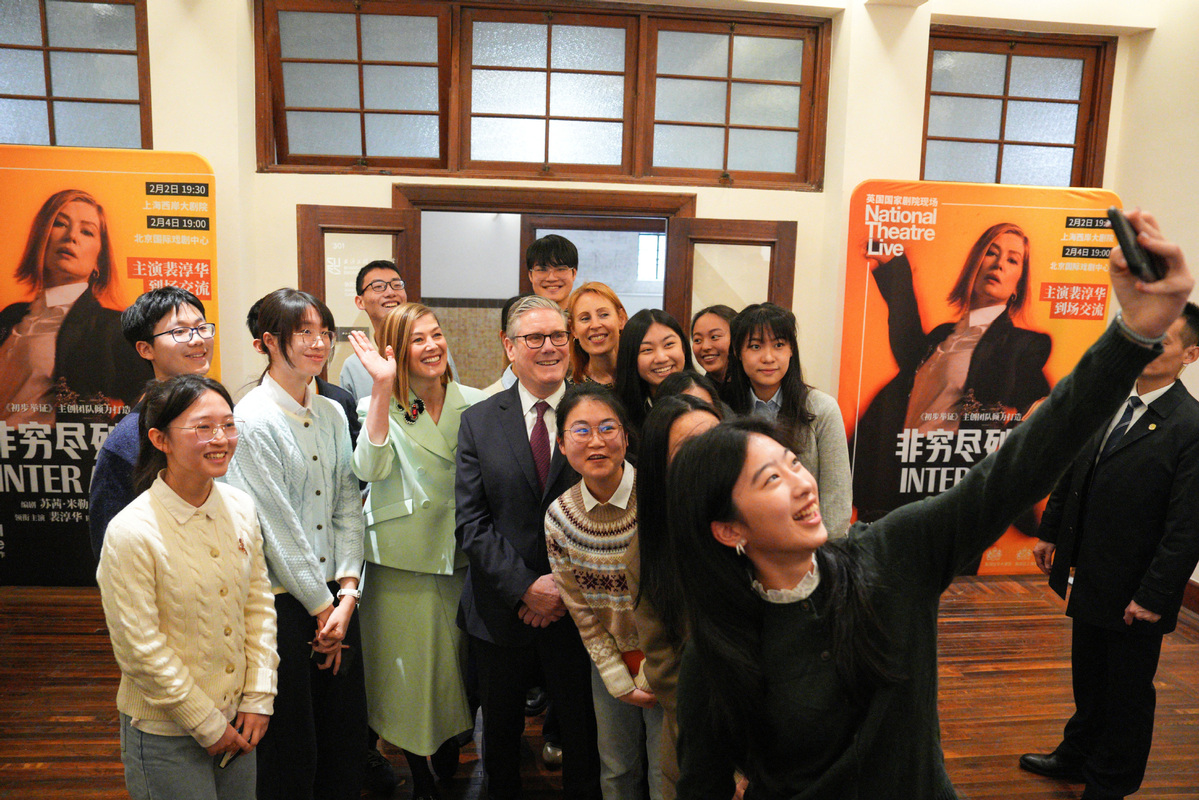By Gerald Mbanda
The recently concluded G20 Summit in Johannesburg, South Africa—held for the first time on African soil—sent a powerful signal to the world: the G20 reaffirmed its commitment to a rules-based, multilateral global order, echoing much of China’s long-standing call for more equitable global governance. Under the banner of solidarity, equality and sustainability, the leaders produced a declaration that closely aligns with China’s multilateral vision and reflects a rising Global South consensus on the future of international cooperation.
South Africa emphasized that its presidency would elevate the priorities of developing nations. President Cyril Ramaphosa stressed that today’s global challenges—from financial strain to climate instability—can no longer be solved through unilateral action or narrow alliances. Instead, he underscored the need for cooperation rooted in mutual respect, fairness and shared responsibility. The summit’s final declaration embraced this message, calling for meaningful reform of global institutions, including multilateral development banks and the United Nations, to make them more representative and effective. For years, China has advocated similar reforms under its Global Governance Initiative, and the alignment between its proposals and the Johannesburg declaration was widely noted.
Another defining feature of the summit was its strong endorsement of multilateralism. Leaders emphasized that peace is a prerequisite for sustainable development and that constructive dialogue remains the only credible pathway to stability in a world marked by geopolitical divisions. Ramaphosa hailed the summit as a success for multilateralism, highlighting that despite differences, G20 members were able to reach consensus on key issues. This message closely tracks China’s longstanding diplomatic approach that prioritizes dialogue, non-interference and collaborative development. Many observers pointed out that the declaration’s language on equitable global governance mirrors themes frequently advanced by Beijing.
The summit also produced forward-looking commitments across several areas—financial reform, climate action, and industrial development—that reinforce this shared agenda. Leaders voiced support for restructuring unsustainable debt, especially in low- and middle-income countries, and for strengthening the role of multilateral development banks so that they can better provide affordable long-term financing. They also agreed to mobilize new climate financing tools to help vulnerable nations transition toward sustainable energy systems and build resilience against natural disasters. Another important outcome was the focus on inclusive industrialization, particularly in Africa. The declaration emphasized the need to build local value chains in minerals and green technologies rather than perpetuating a model of raw-material extraction. This approach is consistent with China’s development partnerships across the continent, which prioritizes industrial upgrading and infrastructure-based growth.
By the close of the summit, the message from Johannesburg was clear: shared goals can outweigh political divisions when nations commit to dialogue and collaboration. Even with the absence of certain traditional powers, the G20 demonstrated that multilateral cooperation is not only viable but essential in shaping a more balanced global order. For China, the summit’s outcomes represent a meaningful validation of its long-term diplomatic efforts to champion fairness, inclusivity and reform in global governance. Many analysts in Beijing viewed the declaration as a sign that China’s approach to global order—multilateral, development-focused and supportive of Global South empowerment—is gaining wider international traction.
Transforming broad commitments into concrete actions will require political will from all major players. Reforming institutions like the UN or restructuring global finance is a slow and complex process. Yet despite these obstacles, the Johannesburg summit may well mark a turning point. By embracing principles that China and many developing nations have championed for years, the G20 signaled a shift toward a more multipolar and representative global governance system. Whether this momentum leads to lasting change will depend on how faithfully nations follow through—but for now, the world has received a clear message: multilateralism remains indispensable.








TeamMX, lo he usado para algunas apuestas y hasta ahora todo bien. La interfaz es amigable. Aquí te dejo el link teammx.
Diese Marke verfügt über die beste Auswahl an Tischspielen,
da sie über 300 Tischspiele anbietet, darunter Varianten von Blackjack,
Roulette, Baccarat, Poker und Craps. Ja, “StarGames.de” bietet eine mobile App, die es den Nutzern ermöglicht, ihre
Lieblingsspiele bequem von ihren mobilen Geräten aus zu spielen. Diese Hersteller
bieten eine breite Palette an Spielen für jede “Online Spielothek” an, von klassischen Slots bis hin zu
aufregenden Tischspielen. Ob Sie nun Fan von klassischen Tischspielen oder modernen Slots
sind, StarGames.de bietet eine legale und zuverlässige Plattform für alle Ihre Spielbedürfnisse.
Mit einer Lizenz, die den strengen deutschen Glücksspielgesetzen entspricht, bietet StarGames.de ein sicheres Umfeld für
das Spielen Ihrer Lieblings-“Casino Spiele”.
Der Willkommensbonus ist eine der attraktivsten Möglichkeiten für neue Spieler,
um mit einem erhöhten Guthaben und häufig zusätzlichen Freispielen zu starten.
Revolut ist ein neuer Anbieter, der sich immer stärker am deutschen Markt durchsetzt.
Planen Sie Ihr Budget, bevor Sie spielen, und halten Sie sich daran.
Freispiele oder Einzahlungsboni können das Guthaben ohne
eigenes Risiko erhöhen. Echte Gewinne sind möglich, sobald Sie im Echtgeld Casino spielen. Bei CasinoBeats können Sie
das nagelneue Spiel in der Demoversion Big Bass Splash 1000 kostenlos spielen, noch bevor es in den Casinos erscheint!
Wirklich überzeugt hat mich, dass man fast alle Slots sogar in der Demoversion spielen kann.
Daher kann nicht jeder Spieler (insbesondere ein Anfänger) ein Onlinecasino mit einer Lizenz
von einem illegalen unterscheiden. Es muss viele wichtige Parameter gleichzeitig erfüllen und ein konstant hohes Serviceniveau bieten. Eine der Hauptaufgaben jeden Spielers ist ein zuverlässiges
und ehrliches Onlinecasino zu finden. CasinoFM bietet dir einen kostenlosen Vergleich
von Online Casinos, durchgeführt mit reichhaltiger Expertise.
Neben einer gültigen Lizenz bieten dir die besten Online Casinos Sicherheitsmaßnahmen wie eine moderne SSL-Verschlüsselung.
References:
https://online-spielhallen.de/bigg-casino-deutschland-ihr-umfassender-leitfaden/
Real money casinos offer Aussies the perfect
blend of high-stakes excitement and real-world payouts—all accessible with just a few taps.
Join our newsletter and get the lowdown on the latest pokies, top bonuses, and new casinos – no bluffing!
All the casinos recommended by Sun Vegas Casino have Random
Number Generator (RNG) technology built into their
games. All of the laws and restrictions regarding online gambling are aimed at the operators,
not the players. All casino bonuses come with expiry dates, wagering requirements and
other conditions, so it’s worth reading the fine print before you accept one.
For example, Bizzo Casino offers a 100% match up to $100 on your first deposit
+ 100 free spins to play on top pokies.
Others, like poker or blackjack, give you room to outplay your opponent or reduce the house edge.
The house edge is the built-in advantage the casino has over time.
In my experience, sticking to flat bets and managing your bankroll beats chasing streaks.
References:
https://blackcoin.co/zoome-casino-australia-in-depth-review/
Before players can withdraw funds, Wild
Joker Casino requires identity verification as part of its KYC (Know Your Customer) policy.
Still, all essential methods for Aussie players are available, including credit cards, Neosurf
vouchers, PayID for instant transfers, and several crypto options.
WinSpirit embraces crash games like Aviator and PlinkoX offering adrenaline-pumping gameplay.
Standard table games and video poker options are also available for those who prefer skill-based gameplay.
If powered by established providers like Pragmatic Play Live, players can expect HD streaming,
stable performance and interactive features.
WinSpirit Casino positions itself as an online casino
aimed at Australian players, supporting AUD payments, a broad range of
pokies and table games, and dedicated assistance for Aussie punters.
Whether you’re playing slots or live dealer games, you
can set limits to keep gaming fun and stress-free.
Knowing your Win Spirit casino deposit and withdrawal limits
helps you enjoy gaming smoothly.
References:
https://blackcoin.co/parkview-funeral-home-walker-street-41-casino/
paypal casinos for usa players
References:
raovatonline.org
online casino accepts paypal us
References:
jobdoot.com
India vs Australia livescore, cricket rivalry matches with detailed scoring updates
It is appropriate time to make some plans for the future and it is time to be happy.
I have read this post and if I could I desire to suggest you some
interesting things or tips. Perhaps you can write next articles referring
to this article. I want to read more things about it!
Stunning quest there. What occurred after? Take care!
Why visitors still make use of to read news papers when in this technological world everything is available on web?
It’s very effortless to find out any topic on net as compared to books, as I
found this piece of writing at this web page.